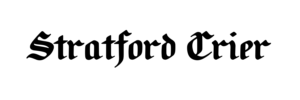Officials with the Connecticut Agricultural Experiment Station (CAES) and the Connecticut Department of Agriculture Warning
Article By: Stephen Underwood, http://Courant.com
If you find a bag of seeds in the mail that you didn’t order, send them in to the state to get tested, Connecticut experts say.
Officials with the Connecticut Agricultural Experiment Station and the Connecticut Department of Agriculture, are urging state residents to remain on the lookout for unsolicited seed packages arriving by mail and to report them, as they may pose environmental and agricultural risks.
A similar event happened in 2020 when thousands of unsolicited seed packages arrived in mailboxes across the United States, according to Jacob Ricker, state agricultural scientist with the CAES. The USDA found most of the seeds were just common plants like lavender, morning glory and hibiscus. But officials warn that the seeds could pose dangers.
“This may be like the 2020 level of packages coming in, but it’s still too early to tell,” Ricker said. “Last time in 2020, the investigation found that a lot of them were ornamental seeds, fruit seeds and vegetable seeds from China. The threat behind this and what we’re concerned about is that anything can be contained in these seeds. They have not been regulated or inspected in any way. They could have a fungus or bacteria that can damage crops or be invasive plants.”
So far, there have been a few reports of Connecticut residents in Fairfield County finding seeds in their mailboxes, according to Ricker. There have been no confirmed reports in other Connecticut counties.
According to federal guidance from the U.S. Department of Agriculture, anyone who finds seeds in their mailbox should mail the seeds and packaging to the USDA Plant Protection and Quarantine Office, 97 Barnes Road Unit 200, Wallingford, CT 06492. The seeds can also be dropped off in-person, officials said.
“We’re strongly relying on the public and Connecticut residents to report them,” Ricker said. “We don’t know who is receiving what seeds. So if someone does receive these seed packets, it would be very good if they reported them. We strongly suggest anyone with these seeds to send them in for testing rather than just throwing them away.”
Anyone with unsolicited seeds should place the unopened packet and any packaging, including the mailing label, in a mailing envelope. If the seed packets are open, first place the seeds and their packaging into a zip-lock bag, seal it and then place everything into a mailing envelope, Ricker said. He said to be sure to include your name, address and phone number so that a state or federal agriculture official can contact you for additional information if needed. Ricker said to only send the seeds.
For those who cannot send their seeds for inspection, the USDA recommends a strict disposal protocol.
If you are unable to surrender the seed or have already planted the seed, please email the Connecticut Agricultural Experiment Station at caes.stateentomologist@ct.gov for further instruction and provide your name, address, phone number and e-mail address.
According to federal guidance from the U.S. Department of Agriculture, anyone who finds seeds in their mailbox should mail the seeds and packaging to the USDA Plant Protection and Quarantine Office, 97 Barnes Road Unit 200, Wallingford, CT 06492. The seeds can also be dropped off in-person, officials said.
“We’re strongly relying on the public and Connecticut residents to report them,” Ricker said. “We don’t know who is receiving what seeds. So if someone does receive these seed packets, it would be very good if they reported them. We strongly suggest anyone with these seeds to send them in for testing rather than just throwing them away.”
Anyone with unsolicited seeds should place the unopened packet and any packaging, including the mailing label, in a mailing envelope. If the seed packets are open, first place the seeds and their packaging into a zip-lock bag, seal it and then place everything into a mailing envelope, Ricker said. He said to be sure to include your name, address and phone number so that a state or federal agriculture official can contact you for additional information if needed. If you received other unsolicited items in addition to seeds, Ricker said to only send the seeds.
For those who cannot send their seeds for inspection, the USDA recommends a strict disposal protocol.
- Do not open the seed packet.
- Completely wrap and enclose the packet with duct tape.
- Place the wrapped seed packet in a zip-lock bag, squeeze out any air and seal.
- Place inside another zip-lock bag, squeeze out any air and seal.
- Fold over to reduce size and completely cover the folded bag with duct tape. This will help prevent the bag from bursting and will keep water and sun from reaching the seeds.
- Discard in trash.
If you are unable to surrender the seed or have already planted the seed, please email the Connecticut Agricultural Experiment Station at caes.stateentomologist@ct.gov for further instruction and provide your name, address, phone number and e-mail address.



